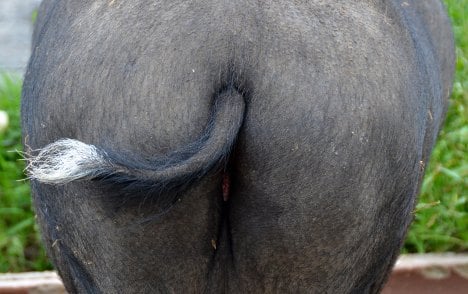The flashpoint happened on December 23, 2011, when the plaintiff waited more than five minutes for a parking space on a busy road, only for the defendant, named Ernst-Gernot M, to shoot into a spot under his nose, Die Welt newspaper reported.
During the ensuing row, Ernst-Gernot M. dropped the “A” bomb – as confirmed by a female witness, who testified in the eight-day court case.
State prosecutors had demanded a fine of €80,000, while the defending lawyer argued, “My client is an elderly gentleman who always maintains his composure. If he did say the word ‘arsehole,’ then he would have done it so quietly that no-one could have heard it.”
Though the incident itself did not take long to unravel, the court case got bogged down because the defendant failed to provide credible evidence of his financial situation.
He described himself as a “poor man,” who lived on €1,400 a month that his family gave him. But the 68-year-old was actually a property dealer who had been mentioned in the local newspaper a few years ago as owner of a high-rise block.
This forced the court to investigate his fortune, and found that he lived in a 171 square metre flat, and paid €2,000 a month on his car lease alone. The court also found that he withdrew around €10,000 a month from his bank, on the basis of which it estimated his monthly income at €60,000.
The fine, of 30 days’ income, was calculated at €60,000.
“It was probably Hamburg’s most expensive insult ever,” the judge said – and banned the man from driving for a month too, for good measure.
The Local/bk



 Please whitelist us to continue reading.
Please whitelist us to continue reading.
Member comments